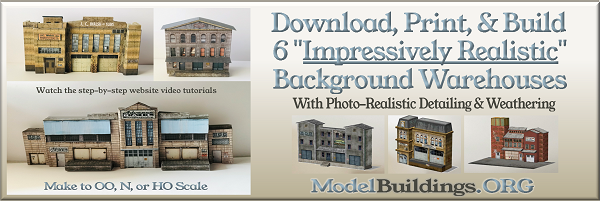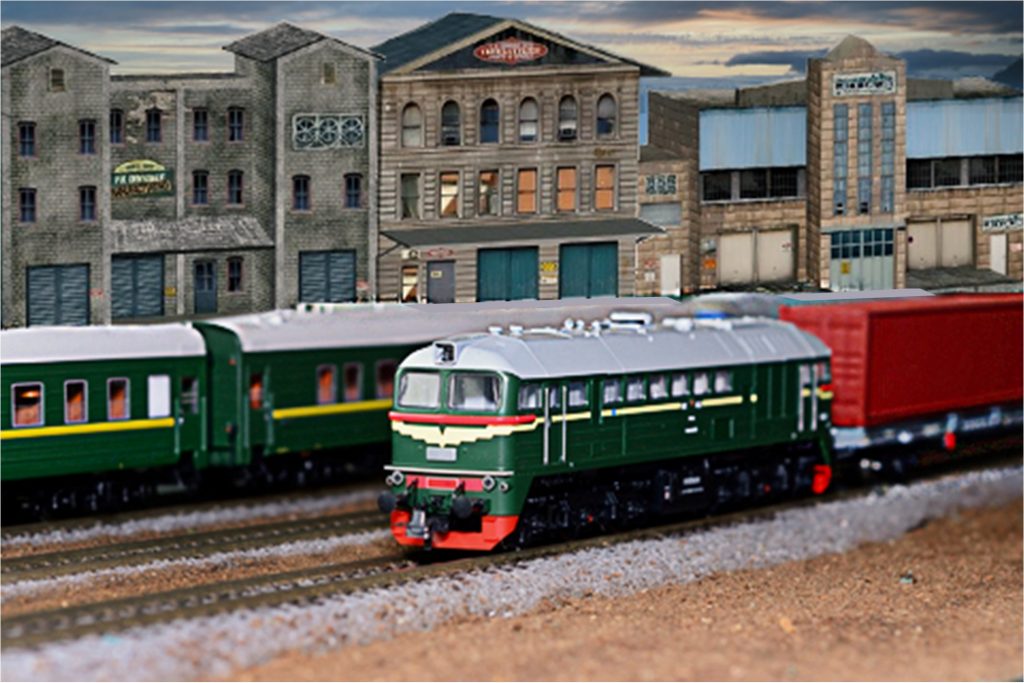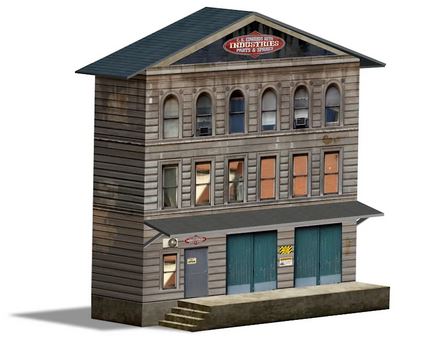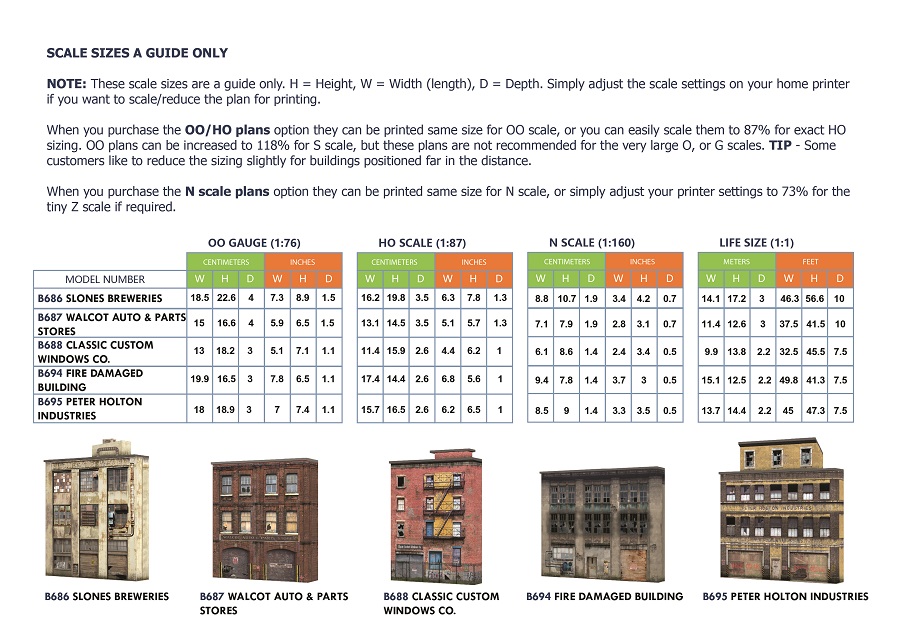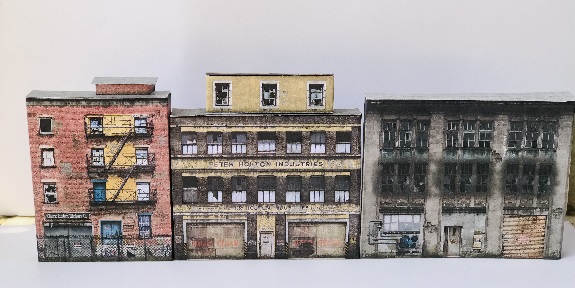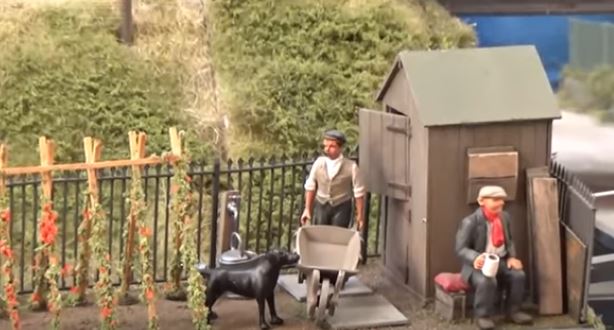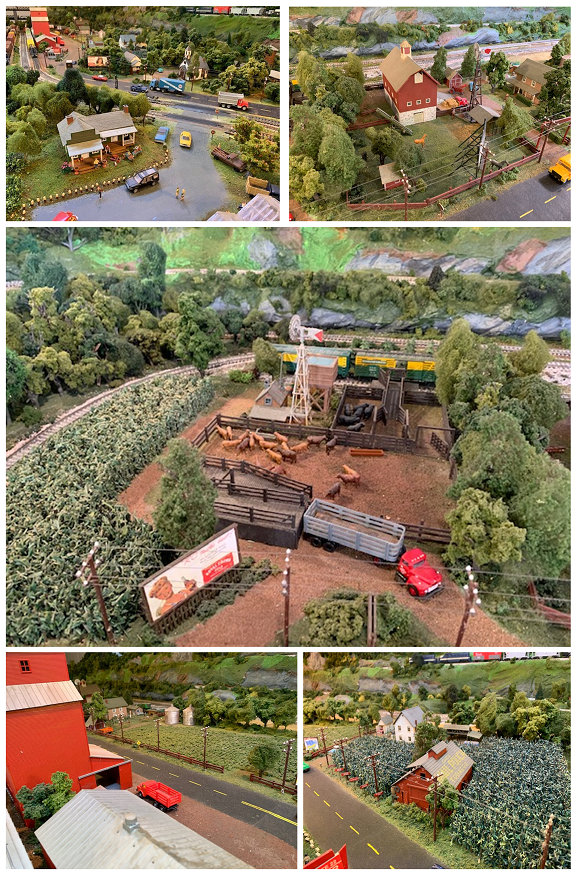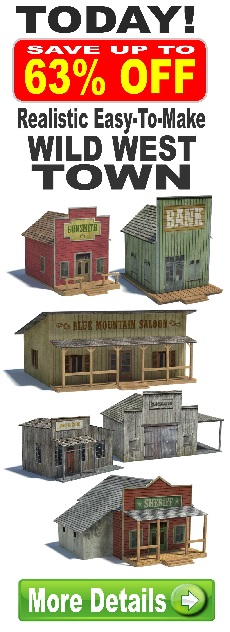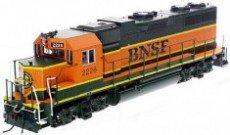Everything on model trains, model railroads, model railways, locomotives, model train layouts, scenery, wiring, DCC and more. Enjoy the world's best hobby... model railroading!
Noisy Kato Series SD80MAC
Lewis has HO scale and asks:
“My Kato Series SD80MAC has slowed and emits a high-pitched shrieking sound. I oiled the bearings, but it made no difference. I’m not sure of the cause or how to fix it.”
Add your thoughts to assist Lewis below.
Best Materials for First HO Layout Benchwork
Ryan asks for advice:
“I’m just getting started on my first HO layout and have a spare room to work with. I want to build benchwork that’s solid and expandable. What materials should I use for the base and supports? Any tips from people who’ve done this?”
You can post your suggestions below.
Planning Your Model Railroad
Having some areas of a model railroad out of reach is a mistake that should be avoided when prior to actually constructing your railroad layout. At some future time, you’ll need to recover a derailed engine from somewhere on your track. Hopefully this short video assists someone.
Converting Athearn Blue Box Locos to DCC with Sound
Travis asks readers:
“I’ve got 4 old Athearn Blue Box locos (DC) and I want to upgrade them to DCC with sound. A hobby shop said it’s doable but might not perform great. Has anyone done this successfully? What should I expect, and how can I get the best results?”
8 Creative Ways to Use Scale Model Shipping Containers on Your Model Train Layout
Add life, color, and character to your layout with these fun container ideas.
If you’re into model railroading, you probably already have a few scale model shipping containers kicking around—or maybe you’ve been eyeing some at your local hobby shop. These little metal boxes aren’t just for sitting on flatcars. In fact, they can become some of the most versatile and visually interesting props on your entire layout.
Here are 8 fun and creative ways to make the most of your scale model containers.
1. Stack ‘Em High at a Container Yard
Let’s start with the classic. Create a container terminal scene by stacking containers in neat rows – or go for that slightly messy, lived-in look. Add a container crane or forklift, throw in some figures, and you’ve got an eye-catching intermodal scene. Mix up the colors and company logos for a more realistic feel.
2. Load Them Up on Flatcars
Nothing says modern freight like a train full of containers. You can load them onto well cars, spine cars, or flatcars. If you want to get really detailed, add miniature chains, twist locks, or weathering to the cars and containers. It’s a small touch that adds big realism. These shipping container plans are available for download in OO/HO scale or N scale at https://www.modelbuildings.org/shipping-containers
3. Create a Pop-Up Shop or Tiny Office
Want to add some modern flair to your city or yard? Convert a container into a trendy pop-up shop, rail yard office, or even a quirky coffee kiosk. Just cut in some windows, paint it up, and you’re good to go. They’re great for urban or industrial settings.
4. Build a Container Home or Bunkhouse
Just like in the real world, containers make great portable homes. Stack one or two, add some stairs, a porch, maybe a little roof extension—and you’ve got yourself a rugged little home or worker bunkhouse. Perfect for rural or mining layouts.
5. Use Containers as a Fence or Security Barrier
Need to block off part of a yard or construction site? Line up a few containers side-by-side as a fence or makeshift barrier. It’s a fast, believable way to break up space on your layout and make areas feel more secure and enclosed.
6. Set Up a Mini Workshop or Tool Shed
A single container can easily become a workshop or tool storage area. Add some exterior details—like oil drums, spare wheels, maybe a ladder—and place it near a roundhouse, yard, or rural trackside. It adds charm and makes a scene feel “lived in.”
7. Abandon One Behind a Warehouse
For a layout with a bit more grit and story, beat up an old container and leave it behind a factory or warehouse. Add some overgrown grass, faded paint, and maybe a dent or two. It gives your layout that subtle touch of realism and decay.
8. Show One Being Delivered
Set up a scene with a truck pulling a container trailer or a crane unloading a container from a flatcar. Even though the layout isn’t moving, this kind of action scene makes the whole area feel more alive.
Final Thoughts
Model shipping containers are small, but they pack a punch when it comes to adding detail, character, and realism to your layout. Whether you’re aiming for a busy intermodal terminal or just want to spice up an industrial backlot, there’s always a way to put a container to good use.
Got your own clever use for containers? Share it with the community – we modelers love a good creative idea.
Trains Derailing at Atlas Switch Frogs
Todd asks readers:
I’m having a lot of derailments when my trains go through the frogs on my Atlas turnouts. Both engines and cars are affected. I’ve checked the switch mechanism, but I’m not sure what else to look at. Any tips on how to stop these derailments?
Please add any comments or thoughts below to assist Todd.
Quick Tips For Planning Model Railroad Track Curves
When planning the track layout for your OO gauge, N scale, or HO scale model railroad, there are several important considerations to keep in mind:
- Avoid overly tight curves – Resist the urge to make the track radius tighter than necessary.
- Do tight curves look realistic? – Ask yourself whether tracks with sharp bends actually appear natural and convincing.
- Consider the length of rolling stock – Modern trains typically have longer cars and rolling stock, which can affect curve dynamics.
- Longer rolling stock affects curve perception – Longer trains can make curves seem sharper than they truly are.
- Real-world comparison – Would a full-size railroad use such sharp curves? Chances are, they wouldn’t.
- Real-life curve radii are larger – The curves on actual railroads are much longer than what you can replicate in a model layout, so don’t try to mimic them exactly.
- Maximize track curve size – Fit in the largest possible curves that your model space allows for smoother operation.
- Use scenic tricks – Employ landscaping or other tricks to distract from tighter curves that might otherwise be obvious.
- Check locomotive compatibility – Ensure that any new locomotives and rolling stock can navigate the curves without derailing.
- The era you’re modeling matters – Your track and rolling stock choices will depend on the time period you’re trying to represent.
- Steam-era locomotives – If you’re modeling a steam era layout, it may not be suitable for a smaller layout space due to the larger size of the engines.
- Sharper curves are best for specific themes – Steeper curves work better for specialized layouts like mining, logging, or switching puzzles, where shorter engines and rolling stock are used.
- Size matters – Ensure that the minimum track radius is large enough to accommodate your longest rolling stock and locomotives without issues.
- These tips apply universally – Whether you’re working with N scale, OO gauge, or HO scale, these principles remain the same.
By keeping these points in mind, you’ll create a more realistic, functional, and enjoyable model railroad layout.
Walthers Mainline GE ES44 Evolution Series GEVO Diesel Locomotive With Digitrax DCS52
A reader posted this question on our YouTube Channel. Please add your suggestions below using the COMMENTS tag.
“I recently purchased a Walthers Mainline GE ES44 Evolution Series GEVO diesel locomotive with DCC and sound. I am currently facing an issue when attempting to change the short address (*CV1*) from the default value of 3 to another number. I am using a Digitrax DCS52 (Zephyr Express). When I attempt to write a new value to CV1, the system shows the operation as “Done,” but the locomotive still responds only to address 3. Additionally, when I use the CV programmer menu, it successfully reads CV values, but when I attempt to write, it shows ‘no pulse acknowledge.’ I’ve confirmed proper track and wheel contact, and the other decoders program is fine using the same system. Could you please advise if there is a known issue with CV writing on this unit or if any special programming method is required for this model?”
Kadee Coupler Trip Pins
Warren asks:
“I don’t use magnetic uncouplers so want to know the best way or tool to clip off or bend the trip pins so they can’t snag on grade crossings. I would like to hear what others have done please.”
You can share your feedback below. Click on COMMENTS.
Need Help Wiring Model Railroad Street Lights
Michael asks:
“Hi everyone. I have a model car display that I purchased HO scale Lionel streetlights to add some ambience. I am not a train guy or an electricity guy. The lights ask for 6 -18v DC power supply (they also come with resisters). My question is there a way to use a phone charger (says up to 3A) and its cable (stripped to individual wires) to power these lights? I already tried once, hooking the black-to-black and red-to-red wires for one light (no resistors), and plugging it in did nothing. Is this a fool’s approach that just will not work? Thanks for any advice.”
Disclaimer: Any answers or suggestions submitted by others are comments only, and any matters relating to electricity should always be checked by experts with qualifications in matters relating to electricity.
Make These Pre-Weathered Old Derelict Background Buildings To Add Character and Realism To Your Model Railroad
Adding Realism Helps Bring Your Model Railroad To Life
Quick 3 Minute Video Shows How Quick and Easy It Is To Make HO Scale, OO, or N Scale Background Structures That Look Truly Authentic Like This One
This plan can be downloaded at https://www.modelbuildings.org
A Free Catalog is also available on the website.
Derailments at Switches
Larry posts this question to readers:
“I recently set my pre-1980s N-gauge train up after it was in a box for fifty-some years. I set up a temporary oval track with no switches and was absolutely amazed and excited that it still works. Now I am working on a permanent layout and purchased some new track pieces including manual switches, all code 80 which matches my old track. My problem is derailments at the switches and I believe the cause, thanks to the tips here, to be the old wheels on my locomotives and rolling stock. I shopped around online to buy new wheels and quickly got lost. My first question is if RP27 the correct standard or should it be RP25? My second question is how can you tell for sure if you are buying wheels made to the correct standard? I see lots of wheels for sale from multiple manufacturers but they don’t have details on specifications. I have all old style couplers as well but am hoping to get away with just replacing the wheels. Thanks in advance for any and all help!
